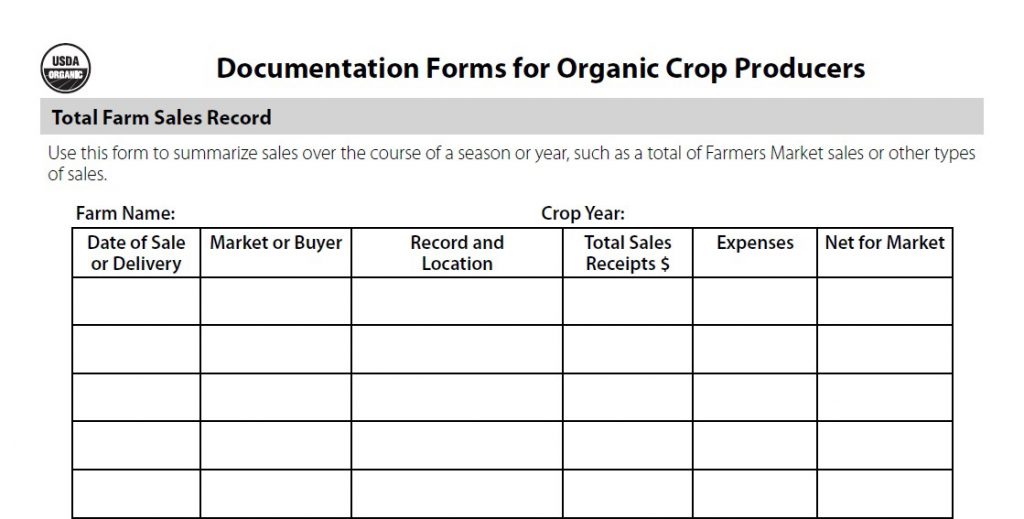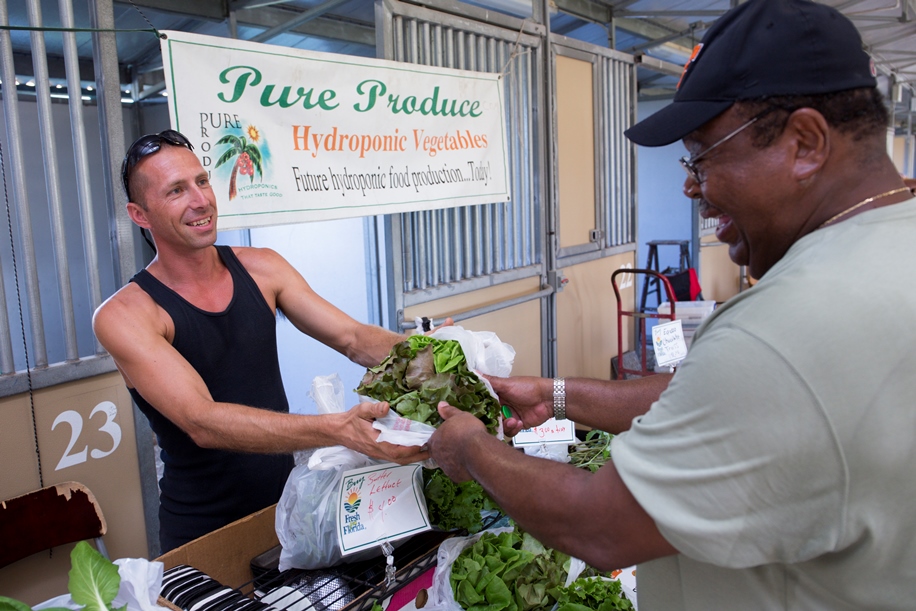The Food Safety Modernization Act (FSMA) included some exemptions for very small operations. If you are not sure if you are exempt, please check out our first article on Food Safety here. If your farm is not exempted from the Food Safety Modernization Act, chances are your farm could be considered a Qualified Exempt Operation as long as your farm meets these two requirements in the last three years:
- Sell between $25,000 and $500,000 on gross food annual sales, (if you sell less than $25,000 annually you are considered exempt). An important tip: when calculating your total food sales, you must include all other food sales from your farm including grains, animal feed, dairy, produce, etc. And,
- Sell more than 50% of your total food sales “qualified end users.” The Rule defines a qualified end user as: “either (a) the consumer of the food or (b) a restaurant or retail food establishment that is located in the same state or the same Indian reservation as the farm and(c) produce is not sold more than 275 miles away from the farm.”
By being a qualified exempt operation your farm will be subject to some but not all provisions of the Rule. In this article we will discuss these provisions in detail.
Record Keeping
The rule establishes that you must have “adequate records necessary to demonstrate that you satisfy the criteria for a qualified exemption, including a written record reflecting that you performed an annual review and verification of your farm’s continued eligibility for the qualified exemption.” Please understand that you have to keep these records for the previous 3 years. In practical terms, this means that if you want to be considered qualified exempt by the year 2020, you have to demonstrate that in each of the previous 3 years, your farm operation fulfilled the two requirements listed above to be considered qualified exempt.

You must keep all your sales records. Sales to qualified end users include your sales to consumers through farmers markets, farm stands, u-pick, and CSAs. Restaurants, schools, buying clubs, internet sales and grocery stores would also be considered qualified end users as long as they are located in the same state or no more than 275 miles away from your farm. At the end of the year you have to add all of these sales up and compare them to your total annual sales to determine if your operation meets the requirements of a qualified exemption.
Another tip: when calculating your gross food annual sales, the law allows adjustments for inflation. Use the year 2011 as the baseline to calculate these adjustments. This may mean that even if your sales are over $500,000 on the year 2017, you may really be under $500,000 in 2011-Dollars when adjusted for inflation.
The law states that the records must be dated, legible and accurate, and should be available within 24 hours after official request. These records must identify the locations and fields of your farm where you carried out some activity related to food safety. These records can be kept on paper or electronically.

Labeling
The law states that your farm name and complete business address must be disclosed “prominently” in the produce package label or at the point of purchase through a poster, sign, placard or document. In the case of internet sales, use an electronic notice. This is required so that, in case of an outbreak, FDA can quickly trace back to the source of the problem.
Final Thoughts
The qualified exemption allows small to medium size farms that sell most of their produce locally and to a qualified end user to be subject to only some of the provisions of the law. Here we have discussed what you have to do to maintain your farm as a qualified exempt operation under the law.
You must do your best to produce and sell safe food. Please keep in mind that FDA can withdraw your qualified exempt status in the event of an active investigation linking your farm to a foodborne illness outbreak or when the FDA, based on the conditions of your farm, deems it necessary to prevent or mitigate an outbreak.
Additionally, your buyer may require you to obtain a third party food safety audit even if you are exempt or qualified exempt under FSMA.
Resources:
The UF/IFAS Small Farms and Alternative Enterprises Extension Program
The program continually offers farm food safety trainings across the state, including assisting you to create your own farm’s food safety plan. Check out our calendar of events and trainings here:
http://smallfarms.ifas.ufl.edu/events_calendar.html, and food safety educational content here:
http://smallfarms.ifas.ufl.edu/food_safety/index.html
The Food Safety Modernization Act Final Rule
The up-to-date legislative language is found on e-CFR, or the Electronic Code of Federal Regulation and the guidance of the act is located here: http://www.fda.gov/Food/GuidanceRegulation/FSMA/ucm334114.htm
National Sustainable Agriculture Coalition (NSAC) Am I Exempt Flowchart
See a great flowchart to help you find out if your farm is affected by FSMA, developed by the NASC.
http://sustainableagriculture.net/wp-content/uploads/2016/02/2016_2-FSMA-Final-Rule-Flowchart-V3.pdf. More detailed information for the Exemption and “Qualified Exempt” farms from NSAC: http://sustainableagriculture.net/blog/produce-rule-analysis-part-1/
UF/IFAS Food Safety on the Farm Series
Good Agricultural Practices: http://edis.ifas.ufl.edu/topic_series_food_safety_on_the_farm
The On-Farm Food Safety Project
Guidance information and an online tool for you to develop your food safety plan.
https://onfarmfoodsafety.org/how-to-get-food-safety-certified/
Other Publications on the Topic
Food Safety Begins on the Farm – A Grower Self-Assessment of Food Safety Risks. A. Rangarajan, E.A. Bihn, M.P. Pritts, and R.B. Gravani. 2003
Wholesale Success – A Farmer’s Guide to Food Safety, Selling, Postharvest Handling and Packing Produce. Slama, Jim & Diffley, Atina. 2013. Fourth Edition. https://Familyfarmed.org
Cornell University’s National Good Agricultural Practices Program
A list of more publications: http://www.gaps.cornell.edu/educationalmaterials.html
 0
0
